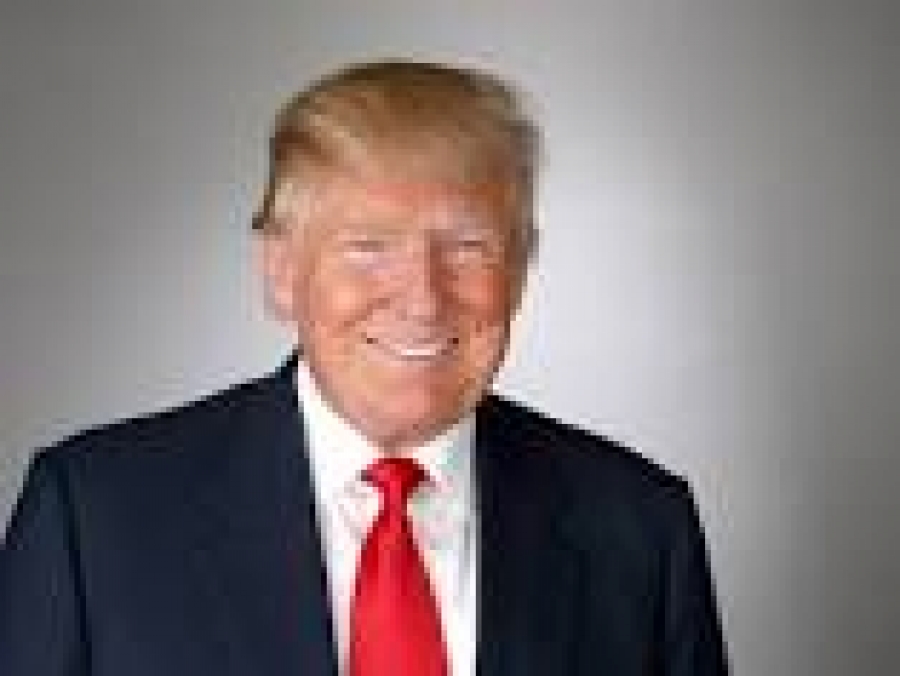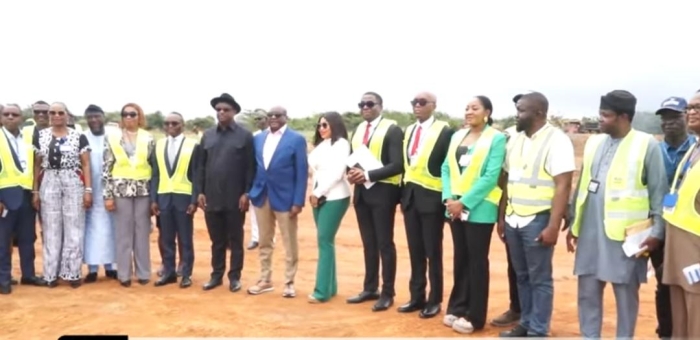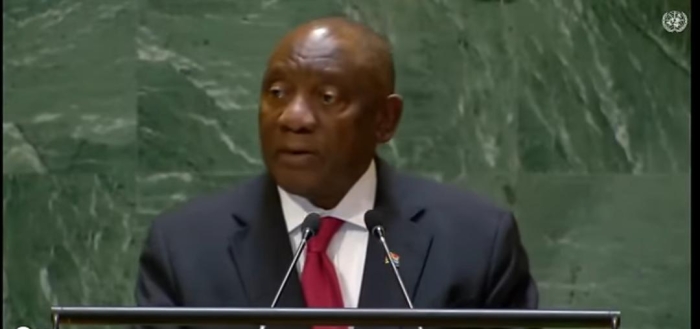Former President Donald Trump turned himself into authorities on Thursday in Fulton County, Georgia. He will now await his arraignment and trial on the 13 offenses for which he was accused, and officials have made it plain that he must exercise caution on social media in the interim.

The conditions of Trump's release prohibit him from intimidating any witnesses or co-defendants in the case, including by making direct or indirect threats against them—including on social media, both personally and by sharing someone else's posts. Trump was freed on a $200,000 bail.
Trump wasn't arraigned when he was booked, unlike in his other indictments; instead, Fulton County District Attorney Fani Willis requested that all defendants in the case be arraigned the week of September 5. This doesn't necessarily mean that Trump will appear in court at that time; he could try to waive his appearance or it could be done virtually.
Though Willis suggested a trial date of March 4, 2024, analysts say it would be too soon for the difficult matter to go to court, and Trump will likely try to delay the trial as long as possible. It is yet unknown when the case will go to trial.
Kenneth Chesebro, a former Trump lawyer, has asked for a speedy trial in the case, which the court decided Thursday will begin on October 23. However, this won't apply to Trump, who has asked to have his issue divided from Chesebro's and anyone else's who requests a speedy trial.
Trump is anticipated to follow his co-defendants, former White House Chief of Staff Mark Meadows and former Justice Department employee Jeffrey Clark, in attempting to have his case transferred to federal court. This is an option if the indictment's actions against federal officials were "under color of [their] federal office."
While legal experts have expressed skepticism that Trump will be able to move the case over, the effort could succeed in further delaying a trial regardless. By moving the case to federal court, Trump could benefit by increasing the likelihood that he could be granted immunity if the court found that he was acting within the scope of his duties as president when he attempted to overturn the 2020 election. It would also make it less likely that the trial would be televised.
Trump is accused of committing racketeering (also known as RICO charges), soliciting a public official to violate their oath, conspiring to impersonate a public official, conspiring to commit forgery in the first degree, making false statements and writings, filing false documents, and conspiring to file false documents, among other offenses. These charges are all pending in Fulton County.
The charges can all result in prison time if he is found guilty, which would total 76.5 years if he were found guilty on all counts and given the longest possible punishment. Many of the accusations can also result in fines.
Major Critic
Trump has vehemently disputed the accusations made against him and, as was to be expected, has denounced the indictment as a "witch hunt" and an attempt to derail his 2024 presidential campaign. He has also attacked Willis, accusing him of being politically biased against him. After being arrested on Thursday, the former president told reporters that it was a "very sad day for America" and made many unfounded accusations that the 2020 election will be "rigged" against him.
If any of Trump's fellow defendants decide to "flip" on him in order to protect themselves. As all of his co-defendants might receive significant jail sentences for allegedly supporting his plan to stay in the White House, it is possible that they could turn on him if Trump refuses to pay their legal fees.
In addition, Chesebro will be prosecuted in October before the other defendants, so MSNBC highlighted that if he is found guilty, it may encourage others to try to collaborate with the authorities in order to avoid repeating his mistakes. Although none of the defendants have publicly "flipped" on Trump yet, some have voiced their displeasure, including former Trump lawyer Jenna Ellis who complained that the defendants' legal bills were not being covered by Trump's super PAC. In a legal filing, David Schafer, the former Georgia GOP chair who was charged with being a "fake elector" who assisted in sending a phony slate of electors to Congress claiming Trump won, also accused the former president and his campaign of being responsible for the scheme, claiming he and other electors "acted at the direction of the incumbent President and other federal officials."
Impressive Fact
If found guilty in Georgia, Trump won't be able to quickly obtain a pardon since the state only allows criminals to seek a pardon five years after serving their sentence and provides an independent board the authority to do so. Even if Trump is successful in having the trial transferred to federal court, the state charges would still be used to try and convict him.
Important Context
The extensive plan by Trump and his aides to rig the state's 2020 election led to his indictment in Georgia. The "fake electors" plot, attempts to prevent Congress from certifying the election results, and pressure on state legislators and officials to reject them were all part of the strategy. One example of this was Trump's phone call to Georgia Secretary of State Brad Raffensperger, in which he requested the secretary "find" enough votes to declare him the winner. According to Willis' office, the defendants "refused to accept that Trump lost and they knowingly and willfully joined a conspiracy to unlawfully change the outcome of the election," alleging the defendants "constituted a criminal enterprise for the purposes of trying to unlawfully subvert the election results."
The former president turned himself in to Georgia authorities on Thursday night, after many of his co-defendants had already done the same. He was then jailed and had a mug photo taken. Trump and his co-defendants were been given till Friday at noon by Willis to present themselves; after that time, they risked being forcibly detained.













